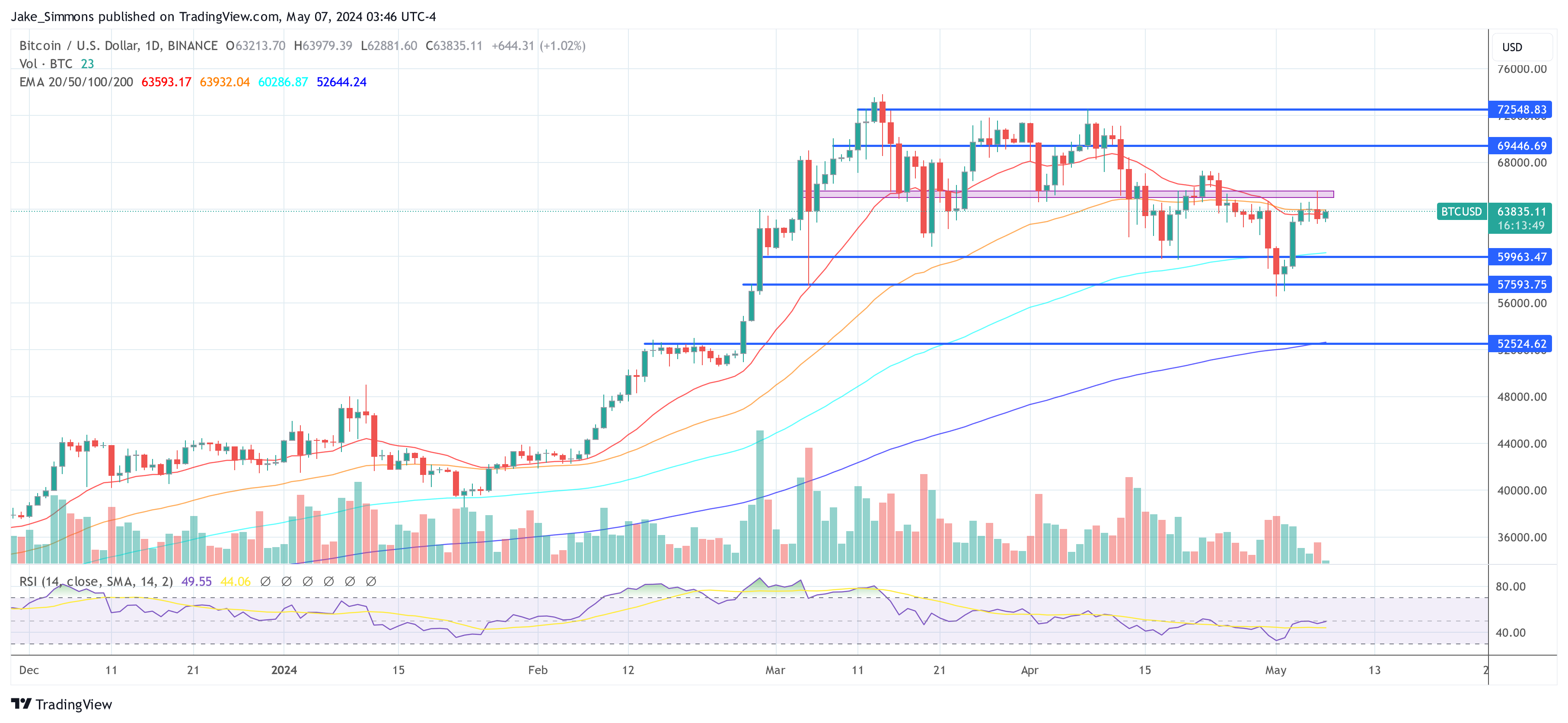The Next Big Catalyst For Bitcoin? What Michael Saylor Predicts
In an interview with journalist Natalie Brunell, Michael Saylor, executive chairman and co-founder of MicroStrategy, laid out his vision for what could next propel the price of Bitcoin. His insights come at a time when the digital currency landscape...

In an interview with journalist Natalie Brunell, Michael Saylor, executive chairman and co-founder of MicroStrategy, laid out his vision for what could next propel the price of Bitcoin. His insights come at a time when the digital currency landscape is experiencing pivotal regulatory and institutional developments.
The Next Big Catalyst For Bitcoin Price
Saylor pinpointed the specific moment he believes heralded the onset of a new era for Bitcoin. “January of 2024 marked the beginning of the period of corporate adoption of Bitcoin,” he stated. The significance of this shift, according to Saylor, is tied closely to regulatory approvals and the distinctive path Bitcoin is carving for itself amidst a sea of digital assets.
The crux of Saylor’s argument is the US Securities and Exchange Commission’s (SEC) decision-making process regarding cryptocurrency spot Exchange-Traded Funds (ETFs). He described the SEC’s approval of Bitcoin spot ETFs as the “first big catalyst.” This regulatory nod not only legitimizes Bitcoin in the eyes of institutional investors but also enhances its appeal as a viable corporate treasury asset.
Now, Saylor argues that the next decisive moment will hinge on the SEC’s handling of other cryptocurrencies. “The second big catalyst will be the SEC’s denial of every other crypto application for spot ETFs,” Saylor explained. By denying these applications, the SEC would effectively position Bitcoin as the premier, unreplicated choice among cryptocurrencies, an outcome Saylor sees as critical for dispelling doubts about Bitcoin’s long-term viability and uniqueness.
“And when we actually see the regulators deny the applications of the copies of other crypto assets, then we will have checked the box. It won’t be banned, it won’t be copied,” Saylor remarked.
Expanding on the implications of such regulatory decisions, Saylor employed a metaphor involving the choice of materials in large-scale engineering projects. He compared the decision-making process in corporate investment in Bitcoin to choosing between steel or bronze for constructing a skyscraper.
“Once you realize there’s just steel and there is no second best metal for structural civil engineering, the project moves forward,” he noted. In this analogy, Bitcoin is likened to steel — the foundational material without substitute — clearing any hesitation about its adoption in corporate portfolios.
Should we be watching for another catalyst that will spur more #Bitcoin adoption?
"The first big catalyst was the SEC's approval of spot #ETFs for Bitcoin…the second big catalyst is going to be the SEC's denial of every other #crypto application for a spot ETF…" –@saylor… pic.twitter.com/4aKarg6eAS
— Natalie Brunell ⚡️ (@natbrunell) May 6, 2024
Notably, this narrative is timely as the crypto sector watches the SEC closely, particularly with regard to Ethereum, the second-largest cryptocurrency by market cap. The final deadline for the SEC to approve or deny the VanEck spot Ethereum ETF is May 23, 2024, a decision that has been postponed repeatedly.
Bloomberg’s senior ETF analyst, Eric Balchunas, noted a decrease in the likelihood of approval in March, citing a lack of communication between the SEC and ETF applicants, which he viewed as a negative signal for Ethereum’s immediate ETF prospects.
At press time, BTC traded at $63,835.
 BTC price, 1-day chart | Source: BTCUSD on TradingView.com
BTC price, 1-day chart | Source: BTCUSD on TradingView.comFeatured image from tesmanian, chart from TradingView.com
Disclaimer: The article is provided for educational purposes only. It does not represent the opinions of NewsBTC on whether to buy, sell or hold any investments and naturally investing carries risks. You are advised to conduct your own research before making any investment decisions. Use information provided on this website entirely at your own risk.

 MikeTyes
MikeTyes 































